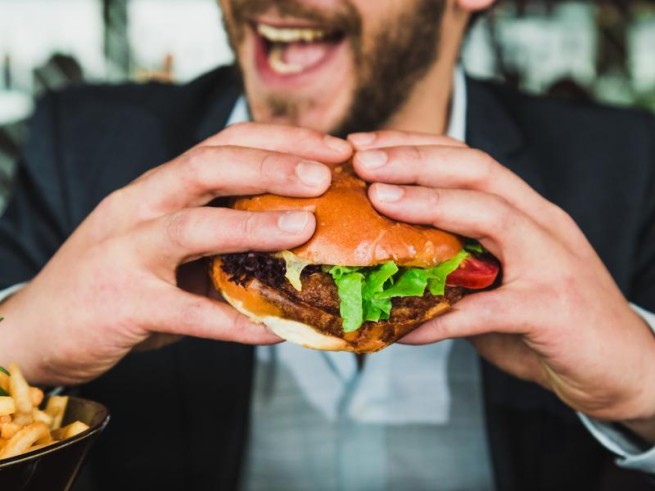The term “emotional eating” is used by psychologists to describe a state in which we eat not because we are hungry, but because we treat it as a way out of some problem that is bothering us, regardless of whether this is done consciously or not. .
For example, someone may engage in emotional eating after the loss of a loved one, a traumatic event, or an unpleasant long-term situation such as a poor work environment or a toxic relationship.
If you notice an increase in your weight, before you have the urge to eat something you find in the refrigerator, it would be It’s good to ask yourself if you’re really hungry. Even if you know that chocolate (etc.) can comfort you, it would be good to consume sweet desserts in moderation.
Also, according to experts, emotional eating is when you feel drawn to a bowl of salad. Most often it is junk food and sweets. Eating a little “forbidden” once is clearly not a problem. But when you repeat this habit every day, it is possible that sooner or later you will face depression and obesity.
How much we eat depends on us. However a person suffering from depression cannot control himself and, therefore, correctly formulate a diet. Many people eat more in the hope that they will feel better. And it turns into an addiction. However, it would be good to know that such “pleasure and pleasure” (from food) are temporary, since no problem is solved in this way.
The solution for anyone to recognize that they are caught in the trap of emotional eating is to identify why they are doing it. For example, if you are at home and have nothing to do, it is very likely that you will often go to the refrigerator and cupboard simply out of boredom, and not because you are hungry. In such cases, experts recommend the following:
- The first thing you need to do is admit that you may have a problem with overeating. This step is very important because this is how you acknowledge that there is a problem.
- It is also necessary to control the amount of food consumed and before each meal ask yourself: “Are you eating because you are hungry, or are you bored and sad?”
- What foods make you feel better or worse after eating them?
- Do you tend to eat in secret or when no one is around, such as late at night?
It is important to identify factors that influence emotional eating., because that’s how you can deal with it effectively. The reason why this is the key to breaking this habit is because Thoughts, events, or behaviors stimulate the desire to overeat. Anyway the biggest mistake you can make is blaming yourself. Instead, it would be a good idea to contact an expert and work with him to solve your problem. He will help you find the outlets that you really need, learn to manage your emotions and love yourself more.







More Stories
Possible causes of puffiness around the eyes
Magnesium-rich foods that also protect against cancer
Toothpaste causes cancer